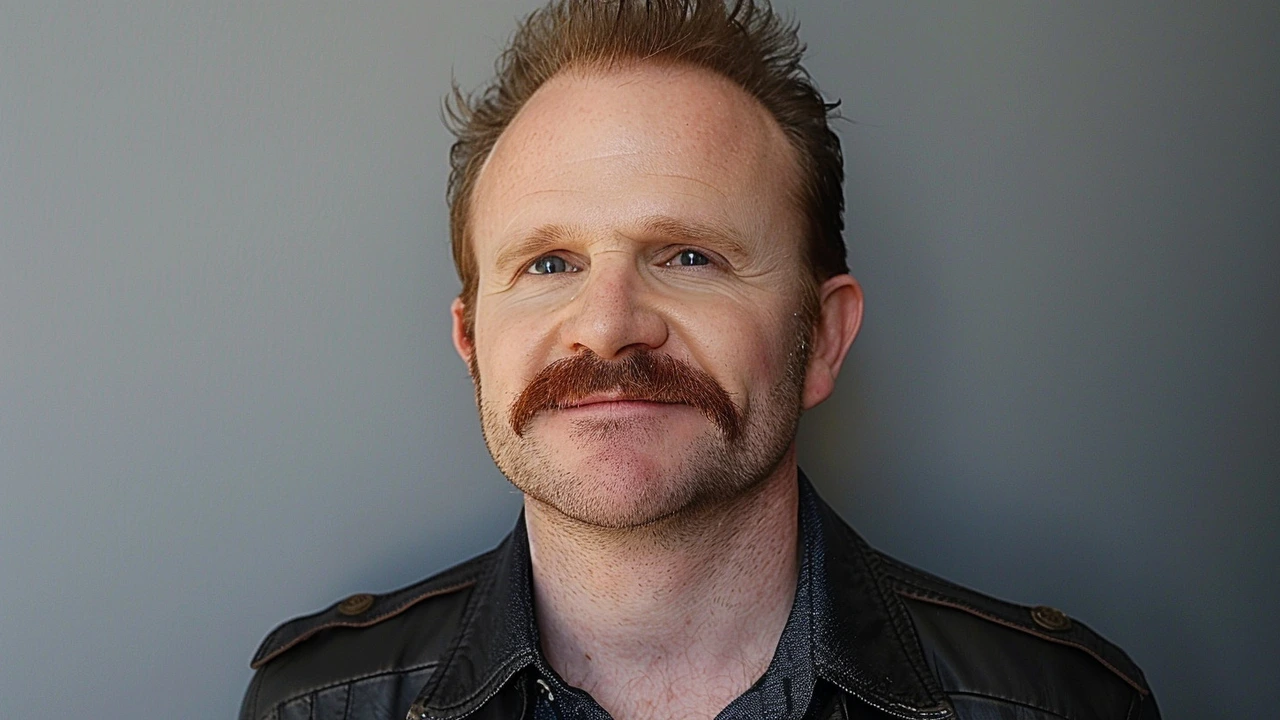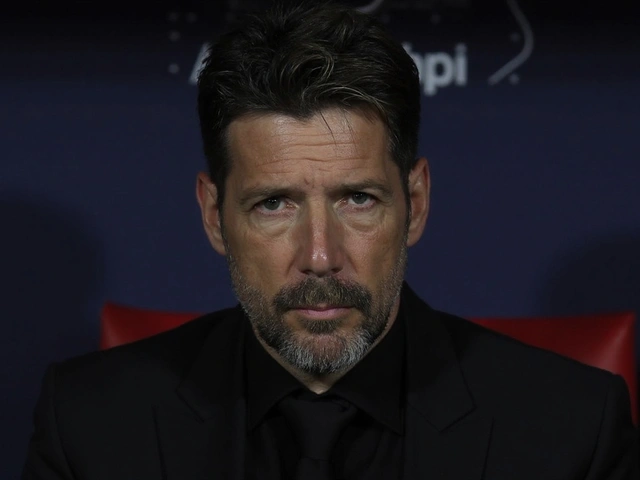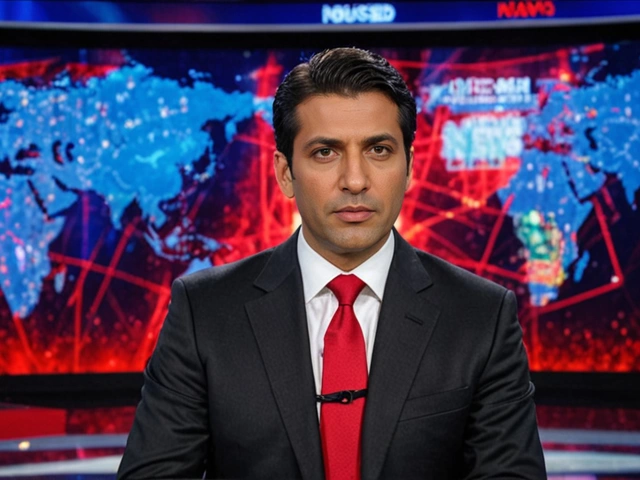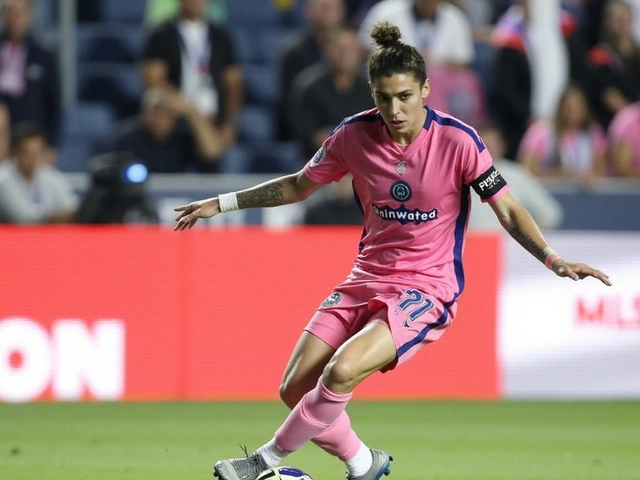The Life and Legacy of Morgan Spurlock
Morgan Spurlock, a name that resonated deeply with documentary film enthusiasts and social commentators alike, has passed away at the age of 53. Known for his relentless pursuit of truth and masterful storytelling, Spurlock’s death due to complications from cancer has left a void in the world of documentary filmmaking. His family, including his brother Craig, confirmed the heartbreaking news, expressing their profound grief.
Spurlock’s legacy is closely tied to his groundbreaking 2004 documentary, 'Super Size Me.' This film catapulted him into the limelight by delving into the effects of consuming exclusively McDonald's food for a 30-day period. Over that month, Spurlock's physical and mental health deteriorated significantly—he gained 25 pounds, suffered depression, and endured severe liver dysfunction. The documentary had far-reaching impacts, sparking a national discussion about the fast food industry's influence on public health and diet trends.
A Career of Provocation and Awareness
Born in Parkersburg, West Virginia, Spurlock’s journey in film began after he earned a Bachelor of Fine Arts in film from New York University in 1993. With a keen eye for controversial and socially relevant topics, Spurlock produced and directed nearly 70 documentaries and television series under his production company, Warrior Poets. His works ranged from explorations of the U.S. war in Afghanistan to unmasking the tactics of marketers and the financial pressures imposed on family farms by corporate giants.
Spurlock consistently pushed the boundaries of traditional documentary filmmaking, often positioning himself as the subject to deliver a more personal and impactful message. This style not only earned him critical acclaim but also ignited public discourse on issues that many preferred to ignore. His fearless approach to documentary filmmaking shed light on the darker facets of everyday life and exposed systemic problems within society.
Controversy and Reflection in Later Years
In 2017, Spurlock faced significant personal and professional setbacks. He publicly admitted to past infidelities and settled a sexual harassment allegation, which led to the premature end of his documentary career. While these admissions and accusations marred his later years, they also demonstrated a rare moment of vulnerability and transparency from the filmmaker, providing a reminder of the complex, flawed humanity behind his work.
Spurlock’s influence on the documentary genre is undeniable, despite the controversies that marked his final years. His unique approach to storytelling and willingness to tackle uncomfortable subjects has inspired a new generation of filmmakers to pursue truth and challenge societal norms through their craft.
Impact and Tributes
As news of Spurlock’s death spread, tributes began pouring in from colleagues, fans, and industry professionals who admired his work. Many remembered him not only for his bold documentaries but also for his commitment to uncovering truths that many chose to overlook. His documentaries didn’t just inform; they challenged viewers to reconsider their perspectives on consumerism, health, and ethics.
In a statement, Spurlock’s family expressed their heartfelt gratitude for the outpouring of support, noting that his legacy would live on through his work and the conversations he sparked. He leaves behind his two children, a lasting reminder of his dedication to social inquiry, as well as his mother, father, brothers, nieces, nephews, and former spouses. His body of work remains a testament to his enduring impact on documentary filmmaking.
The filmmaking community and audiences worldwide will undoubtedly feel the absence of Spurlock’s daring voice. His films, filled with both humor and piercing insight, encapsulated his mission to interrogate and provoke, leaving an indelible mark on the world of documentary cinema.






13 Comments
Jason Lo
May 27, 2024 AT 05:16 AMLet’s be real-Spurlock was a fraud who sold outrage for Oscars. He ate McDonald’s for a month and acted like he discovered fire. Meanwhile, real people are dying from systemic poverty and food deserts, and he turned it into a viral stunt. His whole career was performative activism wrapped in a buzzcut and a GoPro.
He didn’t change anything. He just made people feel guilty while they kept buying Big Macs.
And now he’s a martyr? No. He was a symptom of the problem.
Brian Gallagher
May 29, 2024 AT 01:44 AMWhile the sociocultural impact of Spurlock’s oeuvre cannot be understated, his methodological approach to documentary praxis-specifically the performative self-experimentation paradigm-represents a significant departure from ethnographic rigor. His work, though emotionally resonant, often sacrificed epistemological fidelity for narrative immediacy.
That said, the commodification of health discourse through cinematic spectacle remains a critical area of inquiry in media studies, and his legacy, however fraught, has undeniably catalyzed public engagement with nutritional epidemiology.
Elizabeth Alfonso Prieto
May 29, 2024 AT 13:34 PMOMG I CRIED WHEN I HEARD!! I WAS JUST WATCHING SUPER SIZE ME AGAIN LAST WEEK AND I WAS LIKE OH MY GOD HE LOOKS SO GOOD AND NOW HE’S GONE??
HE WAS A HERO TO ME. I QUIT FAST FOOD BECAUSE OF HIM. I TOLD MY FRIENDS. I MADE A POSTER. I EVEN STARTED A BLOG.
HE WAS THE ONLY ONE WHO TALKED ABOUT IT. NOW NOBODY CARES. I FEEL SO EMPTY.
AND I HEARD HE WAS A BAD MAN TOO BUT I’M STILL GONNA MISS HIM. HE MADE ME THINK.
Harry Adams
May 30, 2024 AT 08:44 AMSpurlock’s work was less documentary and more spectacle-what Foucault might term a ‘heterotopia of crisis,’ where the body becomes a site of moral panic. His self-exploitation was performative, not investigative.
And yet, the cultural residue-particularly in the commodification of ‘health’ as a moral imperative-remains a fascinating artifact of neoliberal subjectivity.
One wonders whether his legacy will be remembered as a cautionary tale or a cultural milestone. My bet: both.
Kieran Scott
May 31, 2024 AT 04:38 AMLet’s not romanticize this guy. He was a narcissist with a camera who turned his own body into a prop for a low-budget HBO special. The ‘Super Size Me’ experiment was statistically meaningless-30 days, one subject, no controls, no peer review. He didn’t expose McDonald’s-he exposed his own lack of discipline.
And the fact that people still treat this like a public health revelation says everything about how lazy our collective critical thinking has become. He didn’t change the system-he just gave people a convenient scapegoat so they wouldn’t have to examine their own choices.
And now, with his sexual misconduct scandals buried under the funeral wreaths, we’re supposed to feel sad? He was a con artist who got rich by making people feel stupid for eating burgers. Don’t memorialize him. Deconstruct him.
Joshua Gucilatar
May 31, 2024 AT 08:10 AMSpurlock was a modern-day P.T. Barnum with a DSLR-except instead of a bearded lady, he sold us a 25-pound weight gain as moral enlightenment. He didn’t ‘expose’ fast food-he weaponized visceral disgust to sell tickets.
But here’s the twist: it worked. Because people are lazy. They don’t want to read nutrition labels or track macros-they want a 90-minute movie that tells them, ‘You’re bad, and this guy is worse.’
And now that he’s gone, we’re all suddenly saints who ‘learned from his sacrifice.’ Meanwhile, the fries are still $1.50 and the Happy Meal toys are still plastic.
Jess Bryan
May 31, 2024 AT 20:29 PMDid you know the CDC funded his research? No? That’s because they didn’t. But the media made it sound like the government backed his stunt. That’s how they control the narrative. McDonald’s didn’t change their menu because of him-they changed it because of lawsuits and lawsuits are paid by shareholders.
And the ‘health crisis’ he screamed about? It’s all tied to the same corporate oligarchs who own the FDA, the USDA, and now his documentary rights.
They let him make the movie so they could control the panic. He wasn’t a rebel-he was a puppet. And now they’re using his death to make us feel guilty so we keep buying ‘organic’ overpriced kale chips.
Ronda Onstad
June 1, 2024 AT 07:36 AMI remember watching Super Size Me in high school and being terrified of fast food. I didn’t eat McDonald’s for a year after that. But now, years later, I realize Spurlock didn’t just show me the dangers of fast food-he showed me how powerful storytelling can be.
He made people care about something they’d ignore. He didn’t have a PhD, he didn’t have a lab-he had a camera and a willingness to suffer for a message.
Yes, he made mistakes. Yes, he was flawed. But he also made millions of people pause and think about what they were putting in their bodies. That’s not nothing.
And if his death makes even one kid watch his films and ask questions about food systems, then his impact lives on. Not because he was perfect-but because he tried.
Steven Rodriguez
June 1, 2024 AT 14:23 PMSpurlock was a true American patriot. He took on the corporate monsters that were poisoning our kids, and he did it with grit, sweat, and a heart full of conviction. While the elites in London and Paris sneer at ‘lowbrow’ documentaries, real Americans-working folks, parents, veterans-saw themselves in his struggle.
He didn’t need a fancy degree from Oxford to know that a 25-pound weight gain from McDonald’s was a national disgrace. He didn’t need jargon-he had truth.
And now they want to bury him under scandals? No. His legacy is bigger than his mistakes. He stood up for the little guy. And in a world of corporate propaganda, that’s worth more than all the awards in Hollywood.
Zara Lawrence
June 3, 2024 AT 04:29 AMIt’s ironic, isn’t it? The man who exposed corporate greed through his films was himself a product of the very system he claimed to oppose. His production company, Warrior Poets-funded by venture capital, distributed by conglomerates, monetized via streaming algorithms.
He didn’t challenge the system. He commodified rebellion.
And now, in death, they’ve turned him into a saint. The same people who profited from his outrage are now selling ‘Spurlock Legacy’ merch. How very… American.
Ashley Hasselman
June 4, 2024 AT 09:07 AMSo he ate fast food and got fat. Groundbreaking. Next he’ll tell us breathing air causes lung damage.
He was the human equivalent of a clickbait headline: ‘I ATE ONLY MCDO’S FOR 30 DAYS… YOU WON’T BELIEVE WHAT HAPPENED!’
He didn’t change the world. He just made people feel bad about their lunch while he got a Netflix deal.
RIP, King of Performative Woke.
Kelly Ellzey
June 4, 2024 AT 21:39 PMEven with all his flaws-yes, he messed up, he hurt people, he made mistakes-he still made us look. He made us feel. He made us ask, ‘Wait… is this normal?’
That’s rare. So rare.
I don’t have to agree with him to honor the fact that he dared to be uncomfortable. He didn’t wait for permission. He didn’t wait for funding. He just… did it. And that’s what changed things.
Maybe we’re all broken. Maybe he was too. But he didn’t let that stop him from trying to make the world a little less blind.
And honestly? That’s the kind of legacy I want to leave behind too.
maggie barnes
June 6, 2024 AT 08:43 AMHe was a fraud. His ‘documentary’ was a staged circus. They gave him a personal trainer, a doctor, and a dietitian behind the scenes. He didn’t get sick from McDonald’s-he got sick from stress and bad medical advice.
And now they’re crying because he died? He ruined his own life. He didn’t save anyone. He just made a TV show.
Stop glorifying him. He was a mess. And so is this whole ‘documentary hero’ narrative.